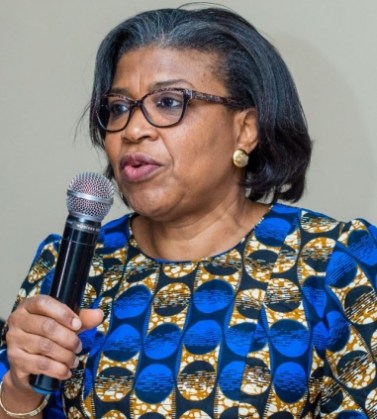THE Debt Management Office on Thursday said Nigeria’s total public debt stock increased to N39.56tn in 2021 from N32.92tn in 2020.
The Director-General, DMO, Patience Oniha, said this at a media briefing in Abuja.
According to her, the total debt includes new borrowings by the Federal Government and the sub-nationals.
She also said that the amount helped in financing the budget deficit, capital projects and support economic recovery.
Oniha said, “Nigeria’s total public debt as at December 31, 2021, was N39.56tn or $95.78bn. The amount represents the total external and domestic debts of the Federal Government of Nigeria, 36 state governments and the federal capital territory.
“The comparable figure for December 31, 2020, was N32.92tn or $86.39bn. The public debt stock for December 31, 2021, includes new borrowings by the FGN and the sub-nationals. For the FGN, it would be recalled that the 2021 appropriation and supplementary acts, included total new borrowings (from domestic and external sources) of N5.49tn to part-finance the deficit.
“Borrowings for this purpose and disbursements by the multilateral and bilateral creditors account for a significant portion of the increase in the debt stock. Increases were also recorded in the debt stock of the states and the FCT.”
She further said that despite the debt increase, the country is still within the total public debt stock to the Gross Domestic Product limit of 55 per cent set by the World Bank and 70 per cent set by the Economic Community of West African States.
Oniha also said that the Federal Government was “mindful of the relatively high debt-to-revenue ratio” and has established certain measures to increase revenues through the strategic revenue growth initiative and the introduction of Finance Acts since 2019.
She said, “The new borrowings were raised from diverse sources, primarily through the issuances of the Eurobonds, sovereign Sukuk, and the FGN bonds. These capital raisings were utilised to finance capital projects and support economic recovery.
“With the total public debt stock to GDP as at December 31, 2021, of 22.47 per cent, the debt-to-GDP ratio still remains within Nigeria’s self-imposed limit of 40 per cent. This ratio is prudent when compared to the 55 per cent limit advised by the World Bank and the International Monetary Fund for countries in Nigeria’s peer group, as well as, the ECOWAS convergence ratio of 70 per cent.”
However, findings showed that Nigeria spent N2.93tn on debt servicing payments in 2021, according to the data obtained from the DMO.
Between January and March 2021, Nigeria spent N612.71bn on domestic debt servicing, while it spent $1bn (N415.92bn) on external debt servicing, giving a total of N1.03tn.
From April to June 2021, the country spent N322.7bn on domestic debt servicing and $299m (N124.36bn) on external debt servicing, showing a total of N447.06bn.
From July to September 2021, Nigeria spent N808.49bn on domestic debt servicing and $520.78m (N216.6bn) on external debt servicing, giving a total of N1.03tn.
Between October and December 2021, Nigeria spent N310.5bn on domestic debt servicing, while it spent $286.35m (N119.1bn) on external debt servicing, giving a total of N429.6bn.
The official exchange rate of the Central Bank of Nigeria, which showed $1 =N415.92 as of March 17, was used for the external debt servicing.
Reacting on the issue, the Chief Executive Officer, Centre for the Promotion of Private Enterprise, Dr. Muda Yusuf, said the rising debt profile of the government raised serious sustainability concerns.
Yusuf, who was the former director-general, the Lagos Chamber of Commerce and Industry, said, “When we take account of borrowings from the CBN and the stock of AMCON debt, the debt profile would be in excess of N50tn.
“The government tends to argue that the condition was not a debt problem, but a revenue challenge, but the truth is that debt becomes a problem if the revenue base is not strong enough to service the debt sustainably.
“It invariably becomes a debt problem. The government’s actual revenue can hardly cover the recurrent budget which implies that the entire capital budget is being funded from borrowing. This is surely not sustainable.”
He said what is needed is the political will to cut expenditure and undertake reforms that could scale down the size of government, reduce governance costs, and ease the fiscal burden on the government.
Yusuf explained, “It is important to ensure that the debt is used strictly to fund capital projects, especially infrastructure projects, that would strengthen the productive capacity of the economy. This is the position of the Fiscal Responsibility Act.
“Additionally, emphasis should be on concessionary financing, as opposed to commercial debts which are typically very costly.

